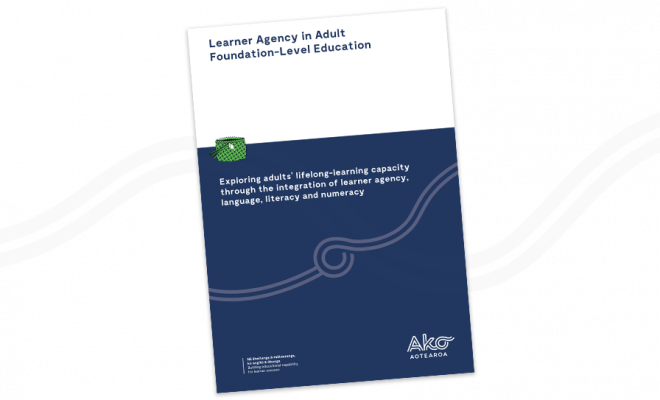Today Ako Aotearoa launched our new report on ‘Learner Agency’ as part of the celebrations of UNESCO’s International Literacy Day. The launch was accompanied by a webinar led by Pale Sauni, Saylene Ulberg, and Damon Whitten, members of our Adult Literacy, Numeracy and Cultural Capability (ALNACC) team. They also discussed the literacy and numeracy issues related to the COVID-19 crisis in Aotearoa New Zealand.
“The recent events surrounding the Covid-19 crisis have reaffirmed the need for everyone to have strong lifelong-learning skills, effective language, literacy and numeracy skills, and high levels of agency", stated Helen Lomax, Ako Aotearoa’s Director.
Our ALNACC team addresses these challenges by providing the very best evidence-based language, literacy, numeracy and cultural competency professional development to the tertiary education workforce.
The report comprises one component of this work. It explores integrating learner agency with language, literacy and numeracy provision in order to equip the tertiary sector, including learners, for the challenges on the road ahead.
A synthesis of existing research showed readiness for lifelong learning requires adults to be agentic learners, equipped to enact proactive strategies in the pursuit of self-directed learning goals, self-managing their learning process and using, evaluating and modifying learning strategies.
“This review finds that lower-skilled adults, while motivated to succeed, enact little agentic learning behaviours; that foundation-level tertiary organisations do not intentionally develop learner agency; and that traditional language, literacy and numeracy (LLN) lessons may cultivate non-agentic behaviours", according to Damon Whitten, the report co-author.
“Therefore, we believe there is great potential to improve the outcomes of current LLN provision and to equip adults with the skills needed to engage in ongoing lifelong learning“, Damon added.
Included in the report is a rationale for the initial phase of an updated, research-informed, LLN professional learning and development package that addresses the concerns raised above. Read more about the ‘Learner Agency’ project.
